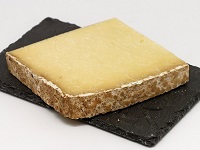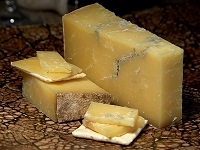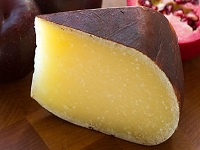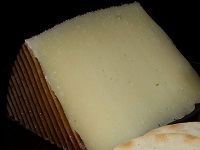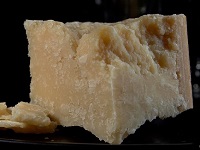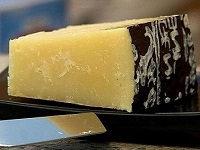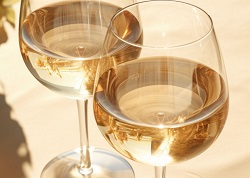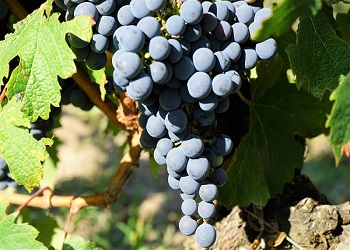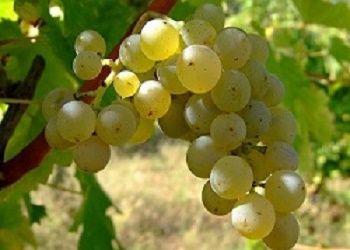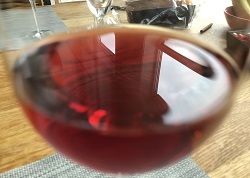Languedoc (France)
Red Languedoc wines tend to be full-bodied fruit driven blends of Grenache, Syrah, Mourvedre, and Carignan.
Languedoc Flavors
Strawberry, Dark Berries, and Plum are typical Languedoc flavors, with notes of Herbs, Flowers (Provencal Roses), Mint, and Minerals.
Strawberry |
Black Currant |
Blackberry |
Blueberry |
Black Cherry |
Plum |
Spices |
Pepper |
Herbs |
Roses |
Lavender |
Mint |
Flavors from Maturation and Aging
Oak |
Vanilla |
Toast |
Leather |
Languedoc Profile
Red Languedoc wines are generally full bodied with rich but smooth tannins:
| SUGAR: | Dry (3 g/l) |
| BODY: | High |
| TANNINS: | High |
| FRUIT: | Medium - High |
| ACIDITY: | Medium - High |
| ALCOHOL: | 14% ABV |
| Serving temperature: 17-18°C (63-64°F) | |
Languedoc Food Pairing
Languedoc wines should be paired with rich flavors.
They pair perfectly with rich Stews, Cassoulets and Marinated Asian (Not Spicy).
They also love BBQ and Grilled Meat (Beef. Veal. Pork. Chicken. Game).
Tapas |
Salami |
Ham |
Pizza |
Cassoulets |
Chicken |
Duck |
Rabbit |
Pork |
Lamb |
Veal |
Game |
Excellent Pairings
Tapas. Cured Meat.
Pizza. Hamburger.
Stews. Cassoulets. Goulash.
Sausages. Pepper Sauce.
Asian Marinated Dishes (Not Spicy).
Lamb. Lamb Shanks.
Game in Cherry Sauce.
Roast. BBQ. Pork. Rabbit. Game.
Poultry. Rich Chicken. Turkey.
Duck. Roasted Duck with Plum.
The Ideal Glass for Languedoc
The Bordeaux Glass was designed for enjoying fuller-bodied, tannic red wines.
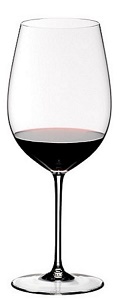
|
They are taller than other red wine glasses, and has a slimmer bowl.
The slimmer bowl directs the wine to the back of your mouth for a maximum taste. The size also allows the bouquet of the wine to develop, smooth out rough edges, play down tannins, and allow the wine to achieve balance. |
If You Like Languedoc
You Might Also Like:
About Languedoc
It is believed that, in Coteaux du Languedoc, the Greeks planted the first vine in France, 500 years B.C.
Languedoc is the biggest French wine-producing region with a production of 1.2 billion liters a year (2016).
The area actually has 5% of the word wide wine production. Larger than Australia, Chile, Germany, and South Africa.
The Languedoc area has 7 Crus du Langedoc AOCs, and eleven Grand Vin du Languedoc AOCs.
It also has one regional appellation - AOC Languedoc, and many IGP appellations that will/can be granted AOCs one day.
Corbières is the largest AOC in Languedoc-Roussillon, responsible for nearly half of the AOC wines in the region.
About GSM
The GMS blend is a classic blend from the Côtes du Rhône region of France. It is also very popular in the Languedoc region.
It is a blend of Grenache, Syrah and Mourvèdre:
Grenache is planted worldwide, but especially in France, Spain,
Italy, Australia, California and South Africa.
It is the dominant grape in the blend, adding soft red berry flavors.Syrah is one of the darkest full-bodied wines in the world.
It adds dark fruit flavors of blackberry, blueberry and plum to the blend.Mourvèdre is a rich red wine.
It contributes tannins and depth and adds herbal and floral notes to the blend.
Why Blend
Blending is a strategic approach that helps winemakers create wines that are not only unique and complex but also resilient and consistent from year to year.
Stylistic Reasons
Complexity and Balance
Blending different grape varieties allows winemakers to create a more complex and balanced wine by combining the unique characteristics of each grape. For example, Grenache provides body and fruitiness, Syrah adds structure and spiciness, while Mourvèdre contributes tannins and depth.Consistency
Blending can help achieve consistency in the final product, ensuring that each vintage maintains a similar profile and quality despite variations in growing conditions.Enhanced Aromatics and Flavors
Different grape varieties contribute diverse aromas and flavors, enhancing the overall sensory experience of the wine. This can result in a wine with a more layered and nuanced palate.
Practical Reasons
Climate Adaptability
Some regions experience variable weather conditions. By blending grapes that ripen at different times or have different levels of resistance to climatic challenges, winemakers can reduce the risks of poor vintages.Viticultural Flexibility
Different grape varieties thrive in different soil types and microclimates. Blending allows winemakers to utilize the best grapes from various parts of their vineyards.Economic Efficiency
Blending can make more efficient use of the available grapes, ensuring that nothing goes to waste and maximizing the overall yield.
Soil
Limestone |
Climate
Coastal plains |
Black Grapes
|
White Grapes
Ugni Blanc |
Red Wines
|
White Wines
Piquepoul Blanc Sparkling Wines: |
Alcohol can be addictive. Always drink in moderation.
© Copyright 2015-2025 W3 Wine School. All Rights Reserved.
